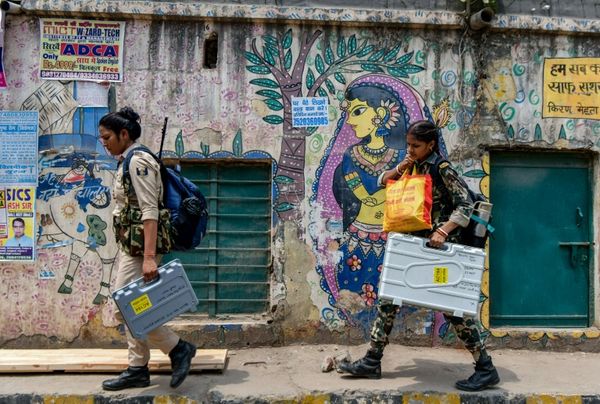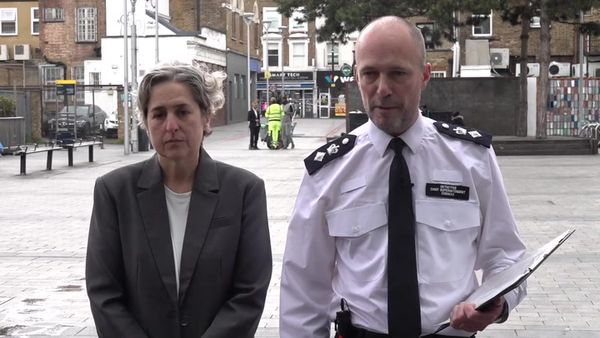
Latest opinion polls show the number of undecided voters remains significant so there was plenty still on the line in last night’s final TV debate. But the different approaches of the two rivals made for a strange contest.
Opinion: It has to be a worry when the panel reviewing the debate is a better watch than the debate itself. But arguably that was the case in the final head-to-head TV joust between Chris Hipkins and Christopher Luxon.
Comprising former Labour leader David Cunniliffe, former National deputy leader Paula Bennett and TVNZ deputy political editor Maiki Sherman, the panel was insightful and informative.
In comparison, the debate suffered from the constantly aggressive approach taken by Hipkins and the decision by Luxon to remain above the fray. It was an unsatisfactory fight.
READ MORE: * Fact checking the final leaders’ debate * Good day/bad day: The end of the beginning
Neither of the two Chrises is a political heavyweight. Blows are landed but there is not much power behind them.
Cunliffe summed up the situation best when he said “the numbers don’t lie, at the moment we have a really high number of undecided voters, and we have a record low Labour plus National vote, it is sitting around 63 or 64 percent, and that’s says neither of these two leaders is truly, truly connecting.
“Labour is stronger on aspiration and intent but National is strongest in criticising the failure (of Labour) to deliver results and that’s what the public, the family in West Auckland, is worried about … the public is not buying either recipe and that’s why Winston, David Seymour and the Greens are doing so well.”
Sherman said she felt National’s leader was connecting better with people when he was outside of the TV studio. “I think watching Christopher Luxon on the campaign he has really come into his own. He does really well interacting with people at a grassroots level like shaking hands out on the campaign while Chris Hipkins is the opposite, you couldn’t hardly get him to say more than two sentences when he is standing in front of someone.”
After a disappointing performance in the first TVNZ leaders debate Hipkins took a more aggressive stance in the Newshub debate and emerged with better results. Last night he doubled down on that approach.
“We saw two strategies tonight, we saw Hipkins, his whole strategy was to discredit Luxon and knock him down and I think you saw Luxon trying to look prime ministerial and talk to the voters,” said Bennett.
All three panel members felt Hipkins had overstepped the mark when Luxon put him under pressure over managing his cabinet and losing five ministers this year. Hipkins responded with “none of my MPs beat up people with a bed leg.” This was a reference to National’s Tauranga MP Sam Uffindell admitting that as a boarder at high school he had hit another student with a bed leg.
Bennett described Hipkins comment as “vile and despicable” and that Luxon took the high road because he could have mentioned that a Labour minister (Kiri Allan) had been caught drink-driving and arrested but didn’t.
Sherman said that a lot of people at home would have thought that was "a low blow but boy it was a strong one".
Cunliffe: “I think he was winning on points until that moment. I think the bed leg was a step too far.”
The shape of television debates is largely determined by the production teams at the networks. The producers of the Newshub debate, held at Auckland’s Q Theatre, decided to personalise a problem in the health system by bringing a dying woman with stage four bowel cancer into its live audience. The ploy resulted in both leaders making commitments to lower the bowel screening age. This was widely reported on by other media the next day.
In what looked like a straight copy of the idea, TVNZ brought a beneficiary into its small live audience. A pre-recorded video was played, where the women named Agnes asked if the leaders could be trusted to do something about poverty. Host Jessica Mutch McKay then asked Hipkins and Luxon to address Agnes in audience when giving their answers.
The producers clearly didn’t anticipate that Agnes might not be happy with what she heard and have ‘live’ follow up questions. They had not put a microphone on her. It was a producing blunder saved only by Mutch McKay’s quick thinking in repeating the questions for the viewing audience at home to hear.
Luxon had told Agnes that he sympathised with her situation, but the best option would be to create a stronger economy with more jobs for people. Agnes perceptively asked, “but what if employment isn’t the answer?”
When Hipkins told Agnes that Labour had lifted 77,000 children out of poverty she replied that “Labour had not done enough.” The chance of a very powerful piece of television was partly lost through the decision not to put a mic on Agnes.
Sherman commented later that “It would have really hurt Labour to hear that they haven’t delivered when it comes to benefits – when we heard from Agnes – that is their bread and butter and there was some strong criticism there.”
The producers also made a strange call with their treatment of a group of undecided voters that had been assembled in a hotel bar. Panel host Jack Tame duly crossed to the bar, but did we hear from the undecided? No. Instead, the segment was taken up by Tame talking to reporter Garth Bray who had been listening to the group’s conversations during the debate.
Bray told us that none of the undecided had heard of Ruth Richardson (former National Minister of Finance who Hipkins referred to in the debate) and that some of them were “absorbing everything” and spending time on the Reddit platform and trying to make some sort of rational decision.
So, who did they think won the debate? queried Tame.
Bray said this was a hard call and the undecided had seen the debate as more of a “spectacle than something that is really going to sway their votes.”
Maybe the show was running short of time, but it was odd that we didn’t get to hear from any of the group.
Tame wrapped up the show by asking Cunliffe for his final take on the debate and the overall campaign. Neither party leader would have particularly enjoyed his assessment.
“I think the captain’s call to rule out a capital gains tax has cost (Labour) four or five percent towards the Greens, Te Pāti Māori and other small parties on the left… You couldn’t fault Chris HIpkins' energy and tactical nous and media nous. I think he has been a strong performing leader.
"Chris Luxon has come across as quite likeable and has publicly tried to stay presidential and positive although the social media campaign in the background has been pretty negative. Both sides have been trading blows, but I don’t think the public comes out of this feeling there is a solid plan either way and I think that is why we'll see the total National plus Labour vote at historic lows and whoever wins I think they both need to have a big think.”






